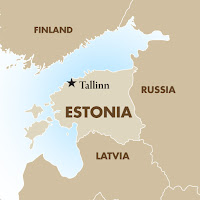 |
| View from the little "Claim Shack." My Montana home. |
Every summer I have the remarkable fortune of spending several weeks in a remote area of Northwestern Montana. One of my dearest friends, Debo Powers, owns some precious acres just across the river from Glacier National Park. She lets me come and stay in her little "Claim Shack," the first structure that she build on the property. She lived in it herself for several years as she was building her main cabin.
 |
| View from one of our hikes. |
This place is pure magic. The whole region is completely off-grid. There are no power lines, no sewer lines, almost no road noise, no stores or gas stations (except a couple of saloons and a little country mercantile), few people, no phone signals . . . and . . . no . . . internet!
One of the first things I notice when I arrive in Montana every summer is the deep silence. It is remarkable how much background noise there is in populated areas. I am so accustomed to it that I don't notice it until I get away from it. The silence and stillness is always a bit disconcerting at first, but after about a day or so, I settle comfortably into the natural environment that is ruled by the rhythms and sounds of the earth.
 |
| Glacier Lilies. They're edible, and yummy! |
The people who live in this area have to go to rather extensive lengths, by our modern standards, to achieve regular internet connectivity. For most of the summers I have gone there, we haven't had much internet at all.
 |
| Another hike view. The pictures don't do it justice. |
Being disconnected from technology for that extended period is quite an experience. Attention starts to turn outward to the present moment--the clouds, the breeze in the trees and grass, the birds and insects, the vibrant colors, the conversations of the people around me . . . when there are people around, the flavors of the food. Time slows down. I slow down. It is the most rejuvenating few weeks of my year. I return refreshed and more present and effective in every aspect of my life.
 |
| Bear Grass in bloom. |
 |
| A lucky wolf sighting! Sweet and shy. |
During that time in Montana, it is easy to unplug and recharge because it is imposed. I have often thought about how to create the same rejuvenating experience without having to go all the way across the country. Of course, there are some aspects of that time that cannot be recreated, but what about just separating from the buzz of the technology for a while?
 |
| Hike to a lookout. |
Sometimes "getting away from it all" can be about just mentally separating ourselves from the outside world and turning inward to our own sensations--about becoming present. And we must realize that unplugging and recharging isn't a simple luxury. It is a necessity for our health, our happiness, and our well-being. I encourage everyone to give it a try. You won't be sorry.
Oh! And if you're ever in the neighborhood, make a stopover in magical Montana!
 For the first month that he is there, he is not allowed to have any contact with his friends and family back home. That's right folks. My son is going away to a foreign country (albeit a wonderful and safe one), and I am not going to be able to hear from him for a month. I mean, I get it. They want him to acclimate. They want him to learn to depend on his host parents. But . . . dang.
For the first month that he is there, he is not allowed to have any contact with his friends and family back home. That's right folks. My son is going away to a foreign country (albeit a wonderful and safe one), and I am not going to be able to hear from him for a month. I mean, I get it. They want him to acclimate. They want him to learn to depend on his host parents. But . . . dang.












